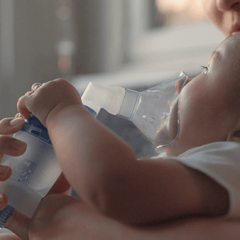Researchers are working to determine whether poor dental health can influence children to eat unhealthy food, placing them at higher risk of obesity and chronic disease in later life.
The University of Queensland Children’s Nutrition Research Centre (School of Medicine) and School of Dentistryare seeking volunteers for the new study that aims to determine if children may be modifying their diets to accommodate dental problems, particularly children born pre-term.
Study leader Sarah Officer said a recent study on oral health in Australia showed that 17 percent of adults avoid eating certain foods because of dental problems.
“The Australian Institute of Health and Welfare report on oral health and dental care suggests that dental problems do affect diet – but this question has never been addressed in studies of children born pre-term, and never in conjunction with another measure of chronic disease risk such as body composition,” Ms Officer said.
“We are keen to find out if children with dental problems such as decay and teeth misalignment are choosing foods that are easier to chew, how this modified diet is affecting their body composition, and whether these dietary choices raise their risk of chronic disease.
“Easy-to-chew foods tend to be highly processed, while healthier choices, such as fresh fruit, grains, lean meat, and vegetables are much harder for children with dental problems to manage.
“If the study demonstrates that dental problems do lead to poor diet and high body fat in children, this could lead to the development of health screening and prevention programs to protect those children at highest risk.”
The study had particular relevance for children born pre-term, as research shows they are more likely to experience feeding and dental problems than children born at full term, Ms Officer said.
“Pre-term children are also at higher risk of chronic diseases such as type 2 diabetes and cardiovascular disease in later life.
The Children’s Nutrition Research Centre is seeking children aged two, six and 10 to participate in the study which will measure growth, body fat percentage, diet and dental characteristics in children.
Volunteers need to live in South East Queensland, be willing to undertake some brief questionnaires, and travel to Brisbane for a dental check and body composition testing.
Media: Kate Gadenne, Communications and Fundraising Officer, Children’s Nutrition Research Centre (07 3636 9271, 0438 727 895 or k.gadenne@uq.edu.au)



